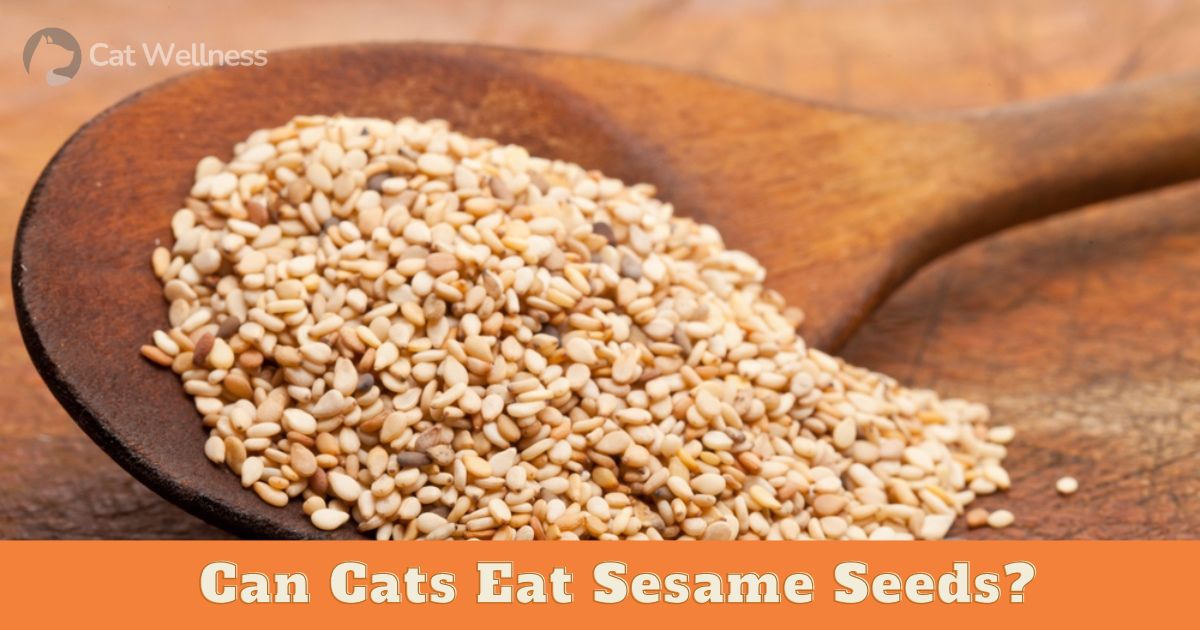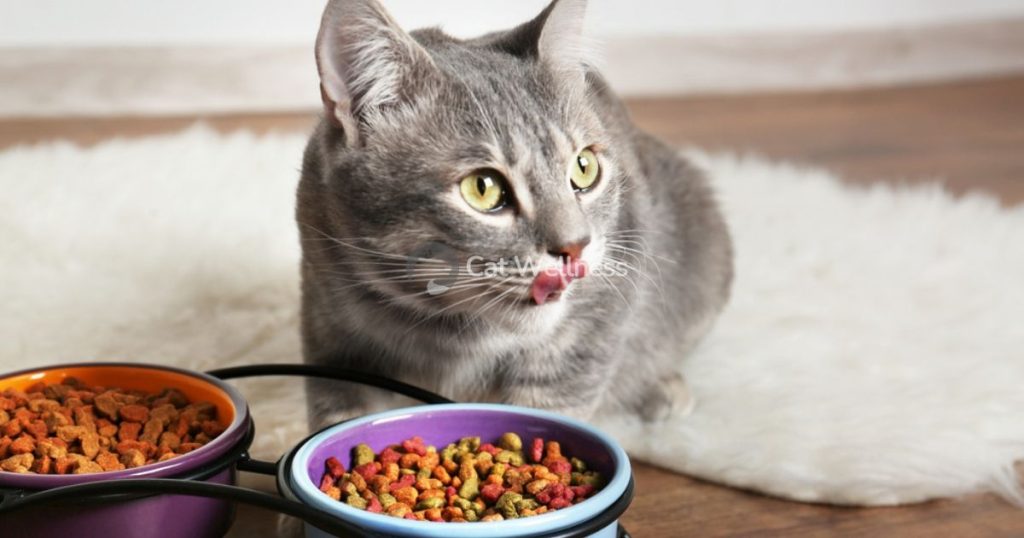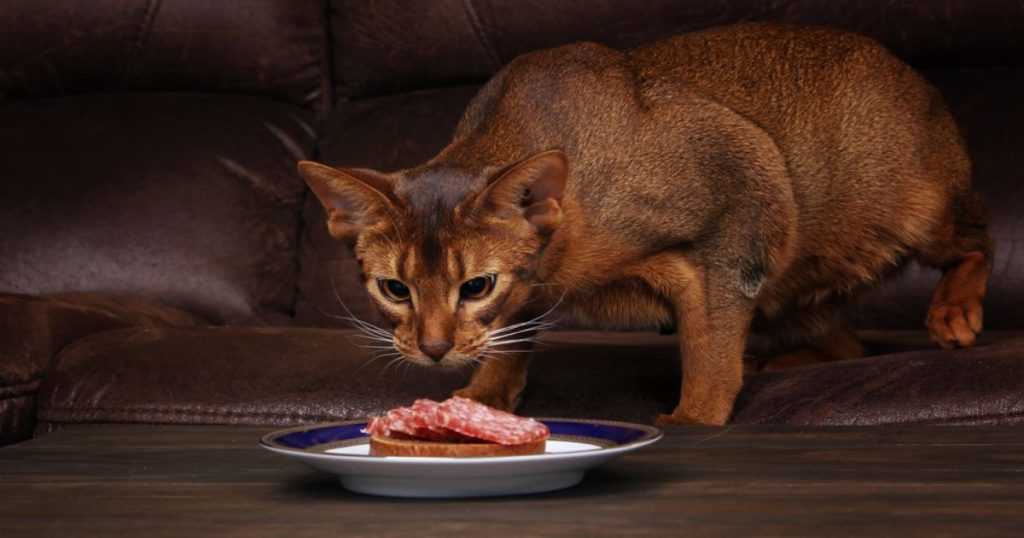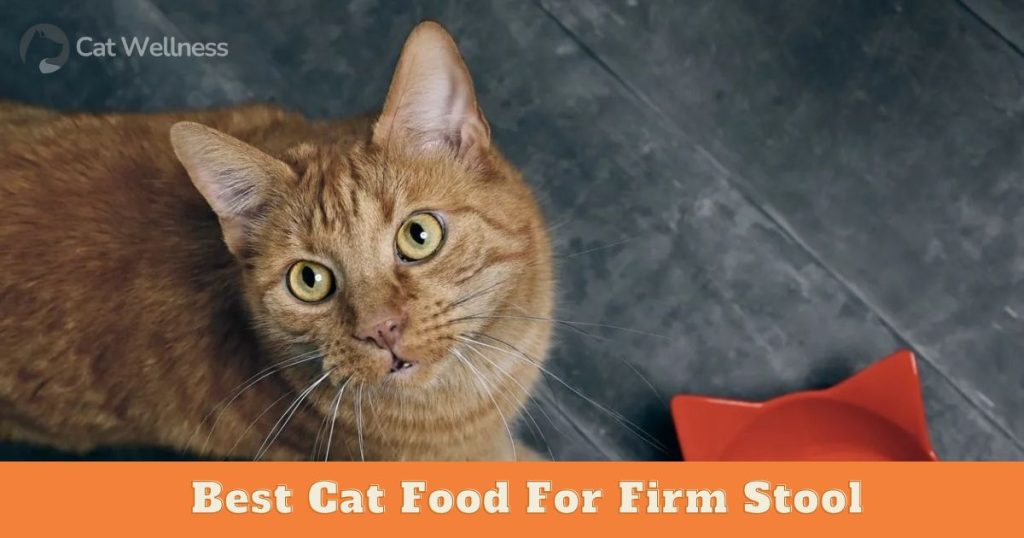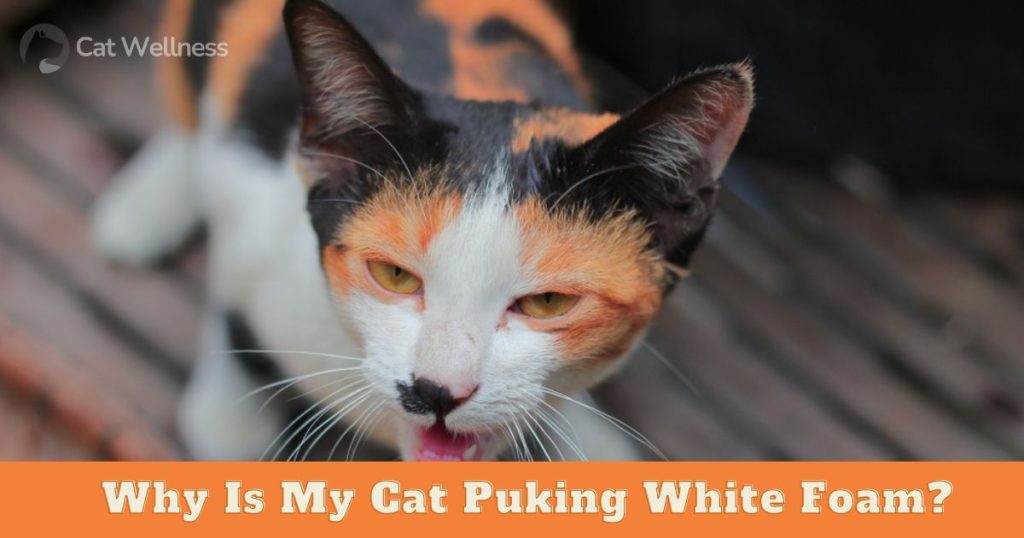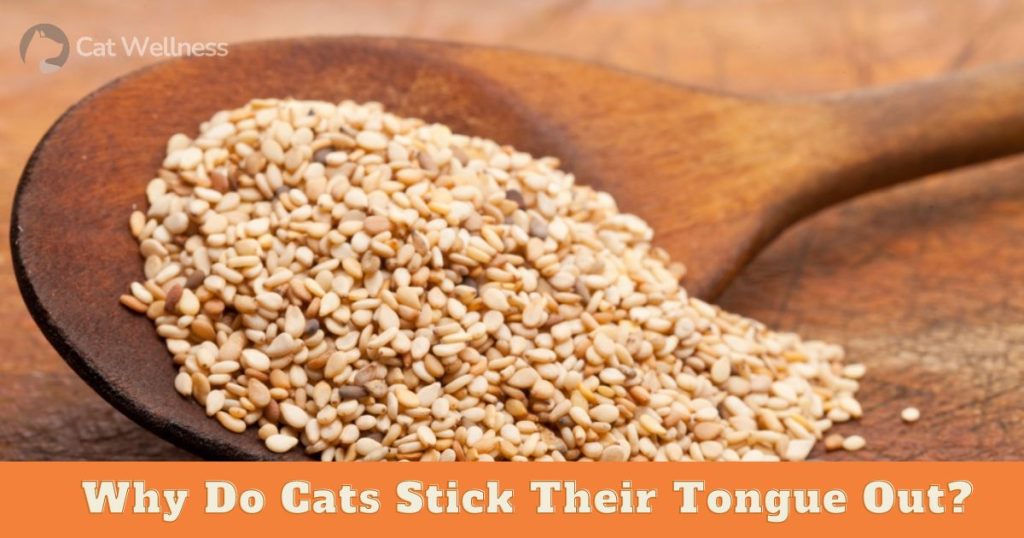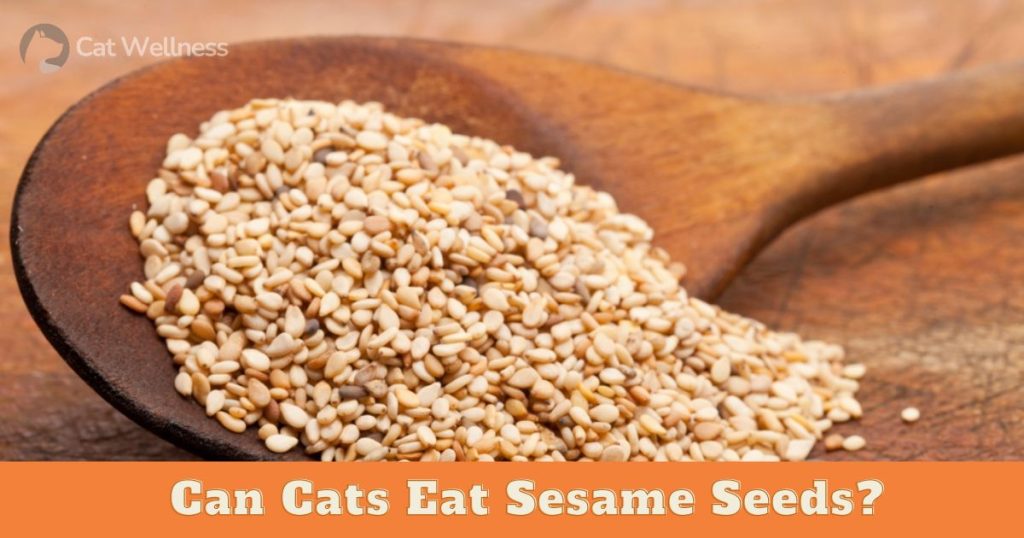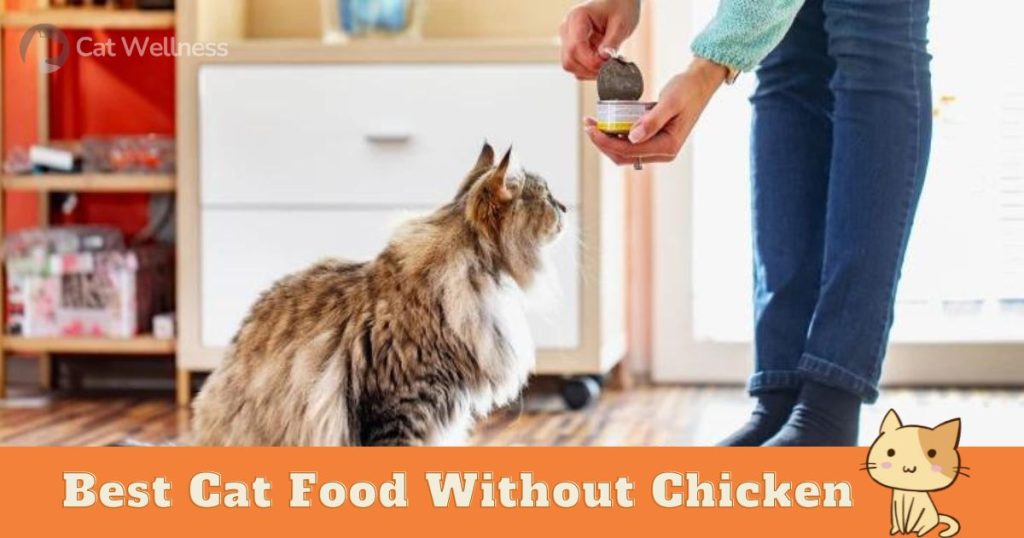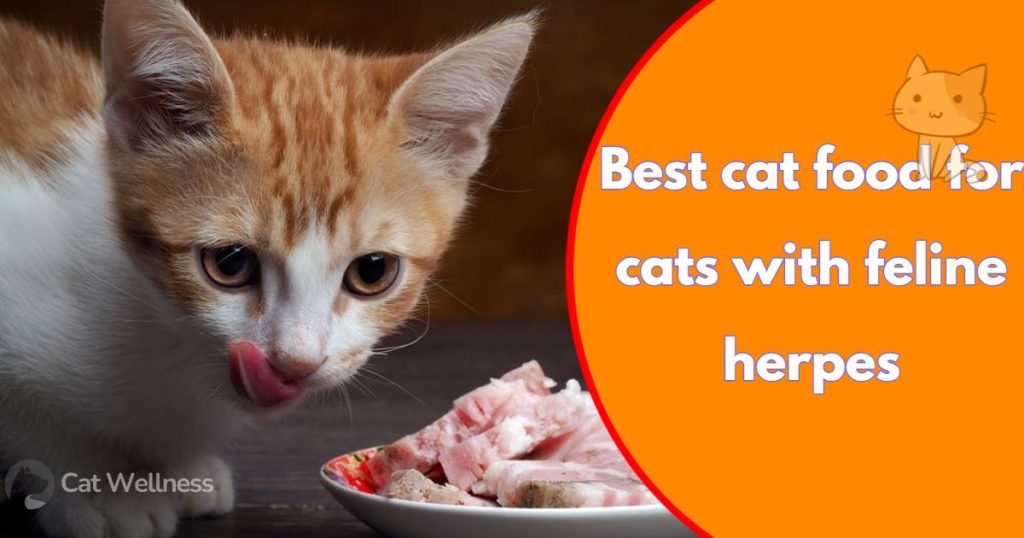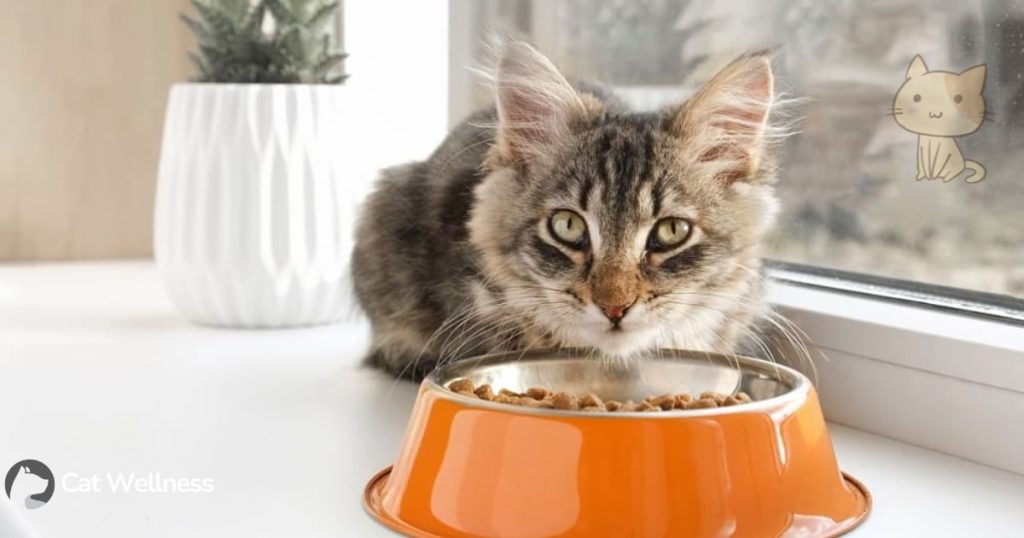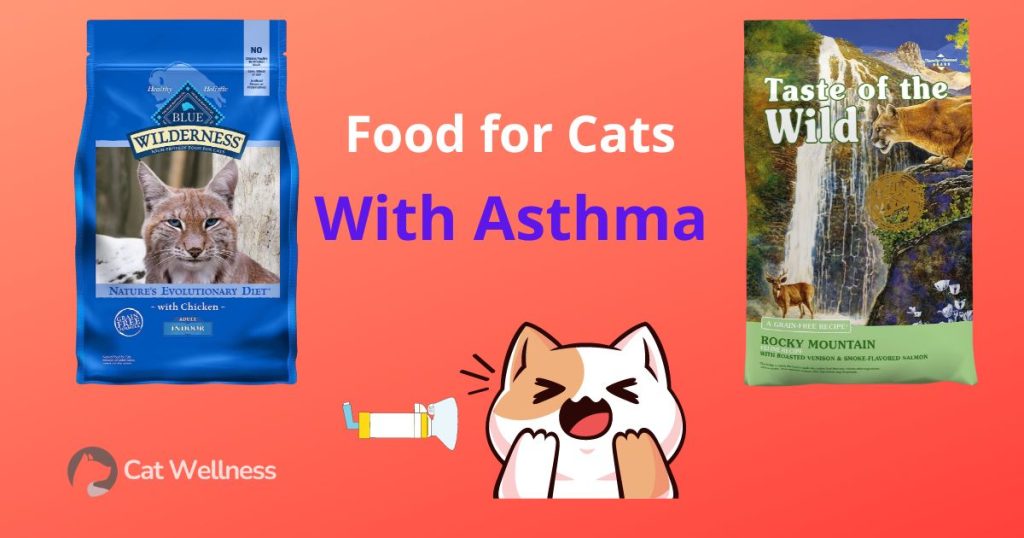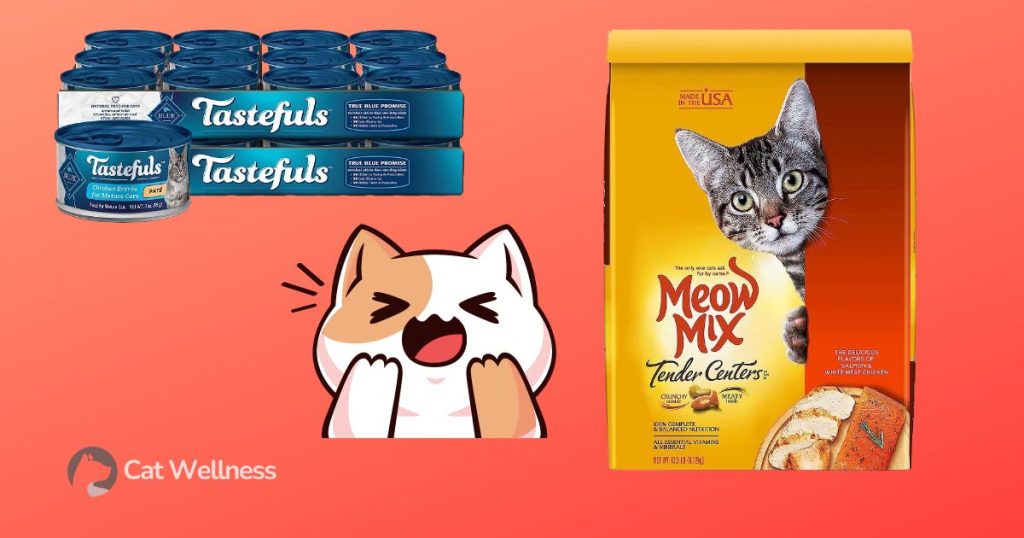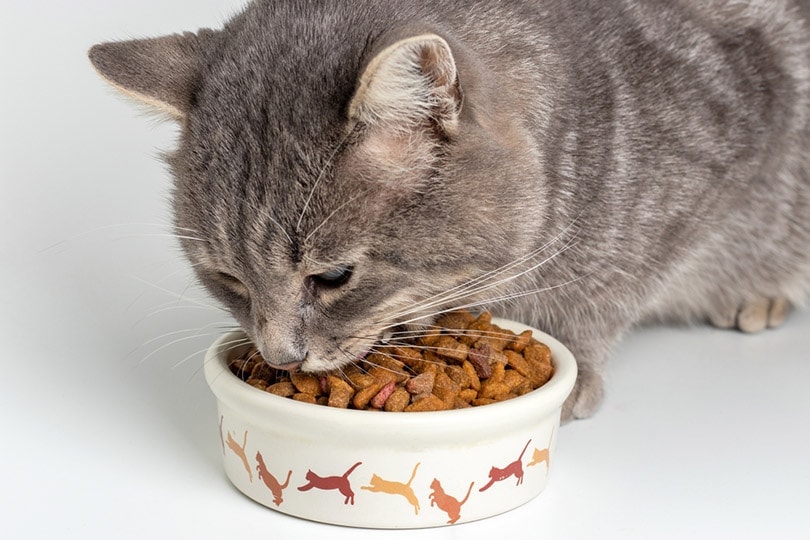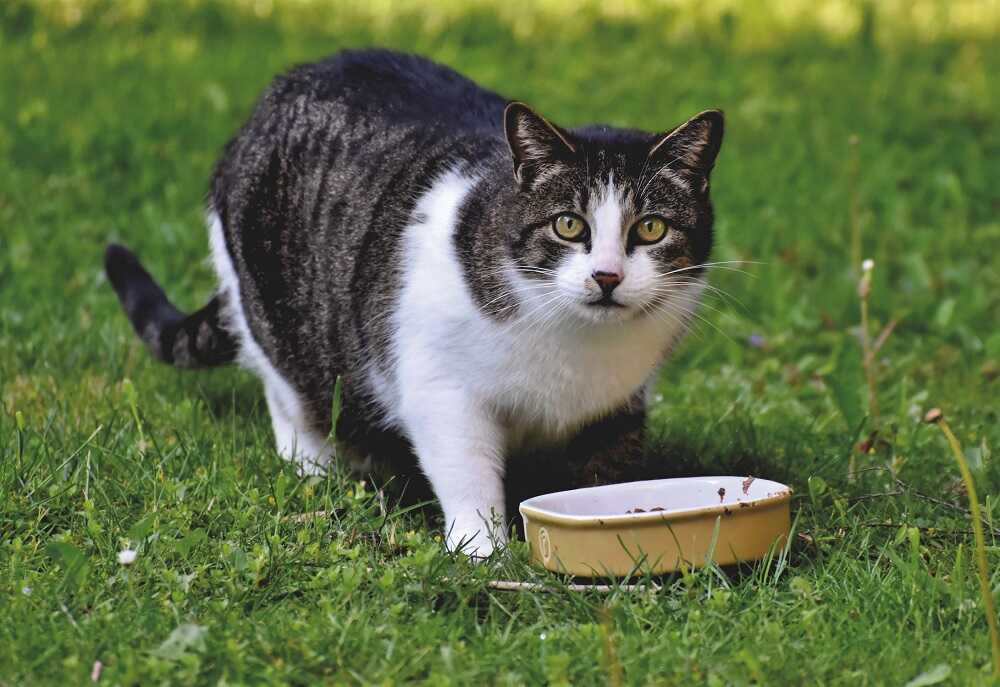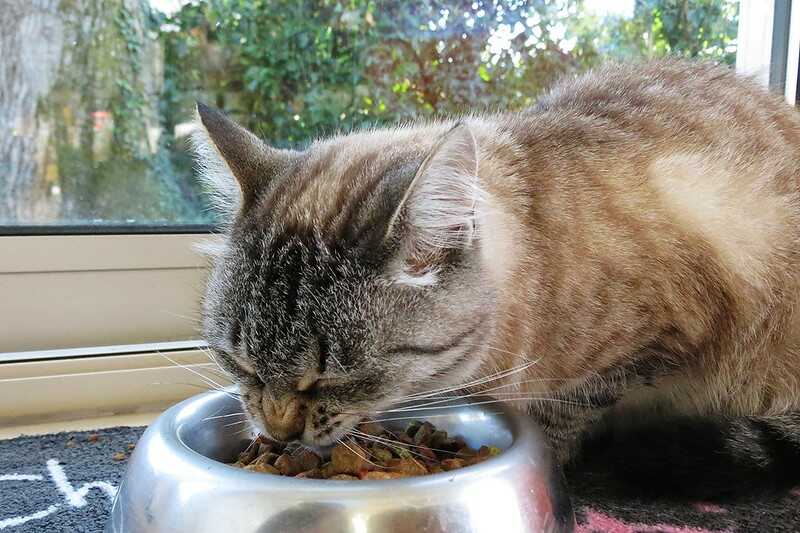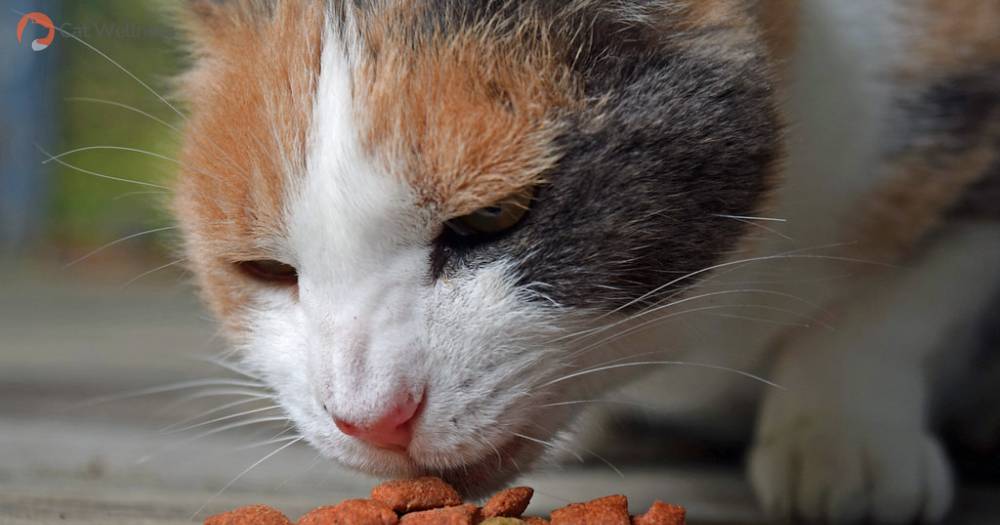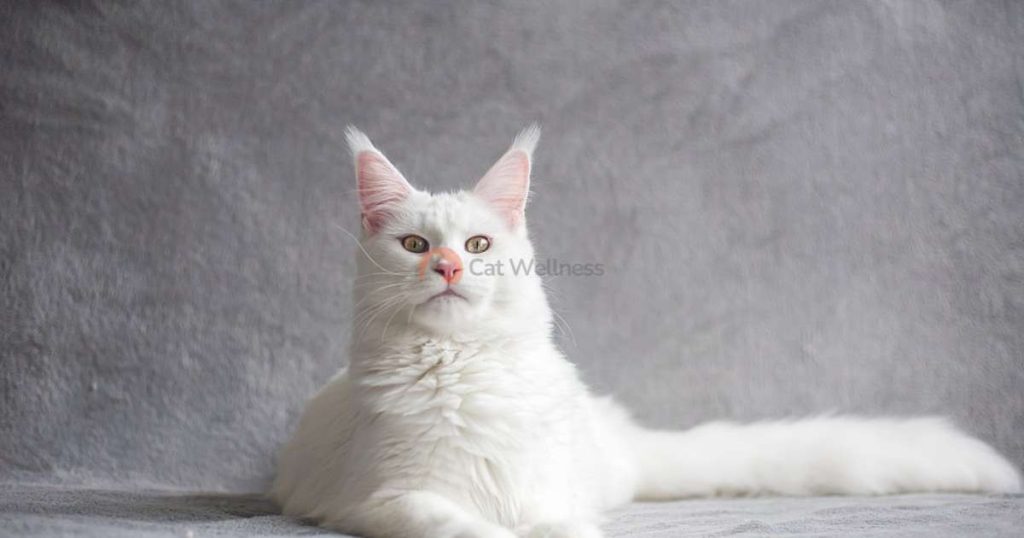Sesame seeds offer decent nutrition for humans and various omnivores. Nevertheless, they aren’t the best choice as a snack for cats. So, can cats eat sesame seeds? While sesame seeds aren’t inherently toxic or harmful to cats, they aren’t easily digestible for our feline friends.
If your cat manages to sneak a nibble of a sesame-seed hamburger bun without your notice, there’s no need to be overly concerned. However, it’s not advisable to actively encourage your cats to eat them. Let’s delve into the reasons behind this recommendation.
Can Cats Eat Sesame Seeds?
The short answer is yes; sesame seeds are generally safe for cats. Nevertheless, the absence of toxicity in these seeds for your cat doesn’t imply that you should freely give them to her.
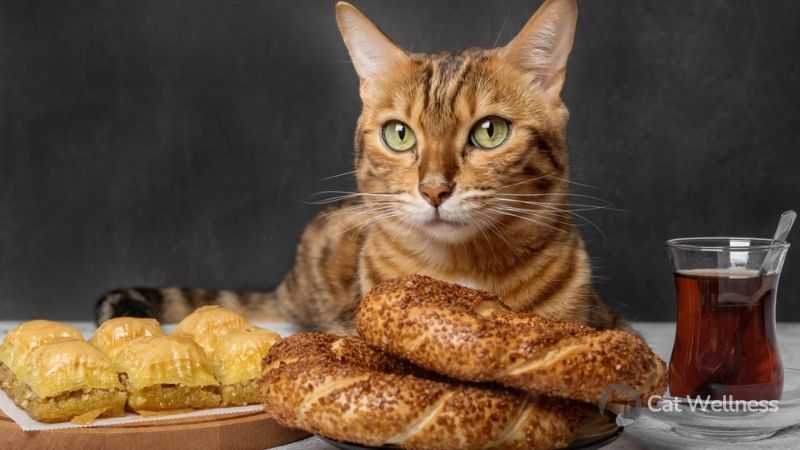
As you will discover, sesame seeds have several inherent risks, particularly when overfed to your feline companion.
Sesame Seeds’ Nutritional Advantages
In essence, sesame seeds offer notable nutritional benefits. They encompass a variety of vitamins and minerals, including vitamin B6, vitamin E, copper, iron, selenium, and zinc, which can enhance and fortify the immune system.
Additionally, the nutrients present in sesame seeds can promote better bone health and reduce inflammation. Furthermore, these seeds contain antioxidants that aid in combating oxidative stress.
The macronutrient composition of sesame seeds is well-suited to meet the dietary requirements of felines. Sesame seeds are low in carbohydrates, rich in healthy fats, and abundant in plant-based protein.
Cats thrive on diets rich in protein with a moderate fat content, while they don’t process carbohydrates efficiently, making them less necessary in their daily nutrition.
Related Post: Can Cats Eat Pretzels?
Are There Potential Dangers When Your Cat Consumes Sesame Seeds?
Apart from not providing the specific nutrients cats require, minimal risks are linked to ingesting sesame seeds. Nevertheless, excessive consumption may lead to digestive discomfort in cats, as they do not digest plant-based proteins as effectively as meat-based proteins.
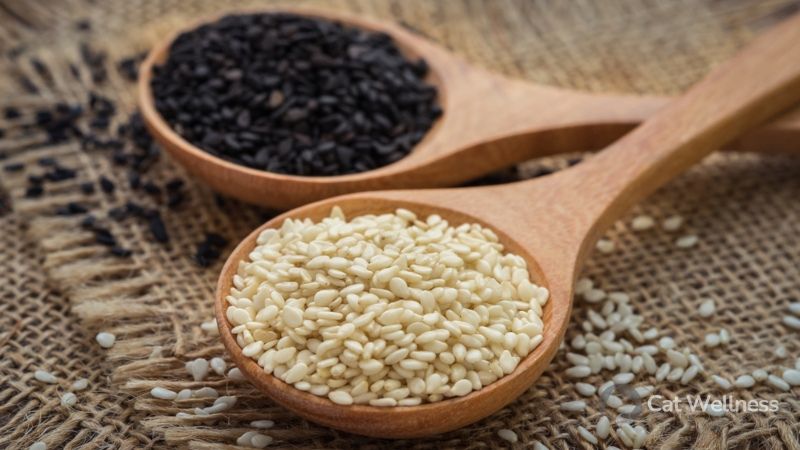
It’s worth noting that consuming one or two sesame seeds alone is unlikely to harm your cat. Nonetheless, there are a few considerations to remember if your cat ingests sesame seeds.
Choking Hazards
Sesame seeds are quite small, which is advantageous for cats known for not chewing their food thoroughly. Nevertheless, these tiny seeds can become lodged between your cat’s teeth, causing discomfort.
Furthermore, they can create a favourable environment for bacterial growth, potentially leading to tooth decay and other oral problems. To avoid this, it’s advisable to inspect your cat’s teeth after she eats sesame seeds and consider brushing them, though this might require some patience.
Potential Toxicity
While sesame seeds are not toxic, they are seldom consumed in isolation. They are often found in baked goods, condiments, spices, and other products that can harm cats. When purchasing pre-packaged sesame seeds for your cat, carefully check the ingredients to ensure they are safe for her.
Limited Nutritional Value for Cats
Despite the health benefits associated with sesame seeds, cats may only partially reap those advantages. Cats are obligate carnivores, meaning they primarily rely on animal protein for their nutritional needs.
Their digestive systems are not well-suited to process plant matter, making it challenging for them to derive significant benefits from the nutrient-rich profile of sesame seeds.
Under What Circumstances Should Cats Avoid Consuming Sesame Seeds?
First and foremost, it’s crucial to ensure that cats with sensitive stomachs or those feeling unwell should never be given sesame seeds. Additionally, if your cat is suffering from any of the following health issues, illnesses, or conditions, it is advisable to refrain from feeding them sesame seeds:
- Pancreatitis
- Vomiting
- Diarrhea
- Kittens that are too young
- Elderly cats
Furthermore, if your cat is pregnant, it’s essential to avoid providing any potentially risky foods that could lead to health problems. Feeding sesame seeds during pregnancy can elevate the cat’s body temperature, directly impacting the mother’s and her offspring’s health.
Related Post: Can Cats Eat Applesauce?
How Should You Prepare Sesame Seeds For Cats?
If you’ve researched, you likely know that sesame seeds come in various forms, including raw, oil, boiled, roasted, and cooked. Regarding cats, it’s advisable to exclude sesame seeds from their diet.
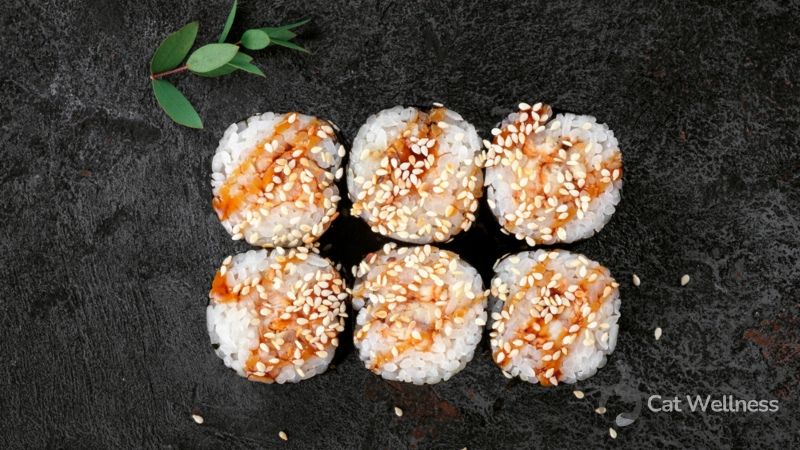
Once you’ve removed the husks and obtained clean, dust-free seeds, it’s best to roast them thoroughly. Cooked sesame seeds are the ideal form to feed to cats, as they are easier for cats to chew and digest.
FAQs
Can sesame seeds be used as a treat for cats?
It is not advisable to use sesame seeds as treats for cats. More suitable and safe cat treats, specifically formulated for feline dietary needs, are available.
Can cats have foods that contain sesame seeds, like hummus or sesame oil?
Cats should not be given foods that contain sesame seeds, such as hummus or sesame oil. These products are unsuitable for feline consumption and may contain harmful ingredients to cats.
What should I feed my cat instead of sesame seeds?
It is best to provide your cat with well-balanced, species-appropriate cat food that meets their nutritional requirements. Consult your veterinarian to choose the right food for your cat’s needs.
Can I use sesame oil as a dietary supplement for my cat?
It is not recommended to use sesame oil as a dietary supplement for cats. Cats have unique dietary requirements, and any supplementation should be discussed with a veterinarian.
Are there any seeds or nuts that are safe for cats to eat?
While many seeds and nuts are not recommended for cats, some safe moderation options include sunflower and pumpkin seeds. Always consult your veterinarian before introducing new foods into your cat’s diet.
What should I do if my cat accidentally consumes sesame seeds and reacts adversely?
If your cat experiences any adverse reactions after consuming sesame seeds, such as vomiting, diarrhea, or other concerning symptoms, contact your veterinarian for guidance and assistance.
Conclusion
We answered your question, can cats eat sesame seeds? In short, cats can technically consume small amounts of sesame seeds without immediate harm. However, it’s essential to remember that these seeds offer little to no nutritional benefit for your feline friend and could pose potential risks.
The best practice is to avoid giving sesame seeds to your cat altogether and focus on providing them with a balanced and species-appropriate diet.
Recommended Reading

